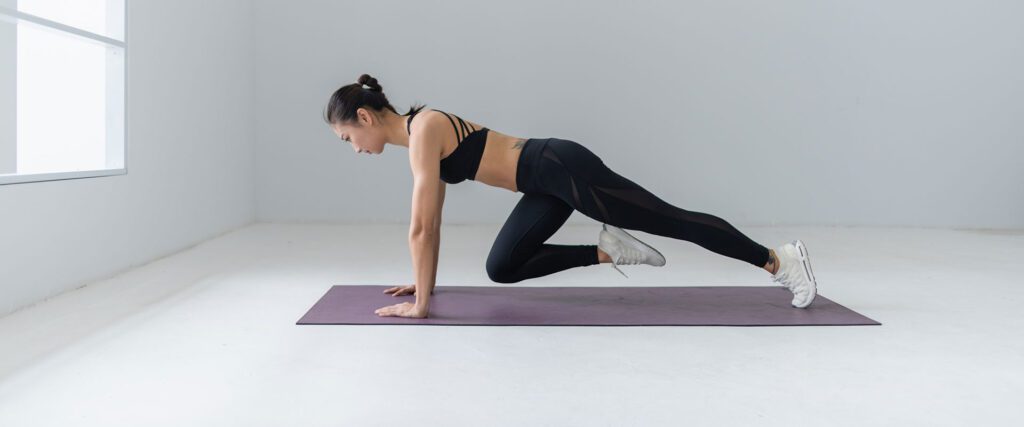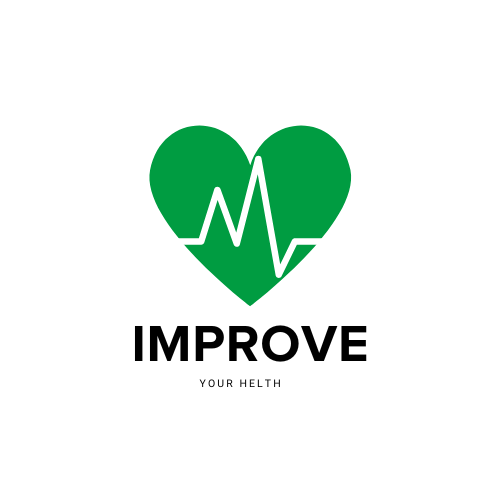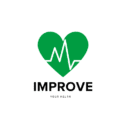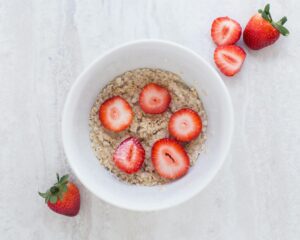Hello this is improve Health, enjoy
we will guide you to more healthy life...




healthy food and workout will change your life

Welcome to improve health website
Welcome to [اimprove health], your trusted source for health and wellness tips.
We are dedicated to helping you live a healthier and stronger life by sharing simple, practical advice that you can apply every day. Whether you’re looking to improve your fitness, boost your heart health, eat better, or just feel more energetic—we’re here to guide you.
Our content focuses on:
Home workouts and fitness routines
Nutrition and healthy food choices
Mental and emotional well-being
General lifestyle improvements
We believe that small steps lead to big changes. Our mission is to make health and wellness simple, clear, and accessible for everyone.
Thank you for visiting us, and we hope to be part of your journey to better health.

The importance of workout and good sleep
Regular workouts and good sleep are two pillars of a healthy lifestyle.
Exercise improves heart health, builds strength, and boosts energy.
It also reduces stress, anxiety, and symptoms of depression.
Sleep, on the other hand, helps the body recover and repair itself.
It supports brain function, mood balance, and immune strength.
Lack of sleep can cancel the benefits of working out.
And skipping workouts can negatively affect sleep quality.
Together, they regulate hormones and maintain a healthy weight.
Consistency in both leads to better focus, productivity, and well-being.
Balancing exercise and sleep is key to overall health and happiness.
Health & Nutrition Articles

At-home workout plan
Exercising at home is one of the best ways to stay active, improve heart health, and maintain overall fitness without the need for expensive gym memberships or special equipment. With the right routine, you can effectively boost cardiovascular health, burn calories, strengthen muscles, and even improve mental well-being — all from the comfort of your home.
Why Focus on Heart Health?
The heart is the engine of the body. When it functions well, oxygen and nutrients reach every part of the body efficiently. Regular cardiovascular (aerobic) exercises lower the risk of heart disease, reduce bad cholesterol, improve blood pressure, and help control body weight. They also release endorphins that improve mood and reduce stress — which is also great for the heart.
Warm-Up (5–10 minutes)
Start with a simple warm-up to increase your heart rate gradually and prepare your muscles for exercise:
March in place – 1 minute
Arm circles – 30 seconds each direction
Jumping jacks – 1 minute
Leg swings or light jogging – 2–3 minutes
Warming up reduces the risk of injury and helps your body perform better during the workout.
Full Home Workout Routine (25–30 minutes)
Here’s a simple yet effective home workout routine that targets all major muscles and gets your heart pumping:
1. Jumping Jacks
Duration: 30 seconds
Rest: 15 seconds
Benefits: Boosts cardiovascular endurance, coordination, and metabolism.
2. Bodyweight Squats
Reps: 15–20
Sets: 3
Benefits: Strengthens legs, glutes, and improves circulation in the lower body.
3. Push-ups
Reps: 10–15 (modify by doing them on your knees if needed)
Sets: 3
Benefits: Builds upper body strength and helps stabilize the core.
4. Burpees
Reps: 8–12
Sets: 2–3
Benefits: A powerful full-body cardio move that improves endurance and heart health.
5. Plank
Hold: 30–60 seconds
Sets: 2–3
Benefits: Builds core strength, improves posture, and reduces lower back pain.
6. Mountain Climbers
Duration: 30 seconds
Sets: 2–3
Benefits: Cardio plus core workout that boosts stamina.
7. High Knees
Duration: 30 seconds
Sets: 2
Benefits: Raises heart rate quickly and burns calories fast.
You can perform this routine 3–5 times a week depending on your schedule and fitness level. Adjust the duration, reps, and sets as you progress.
Cool-Down (5–10 minutes)
Don’t skip the cool-down! It helps your heart rate return to normal and reduces post-workout soreness. Do light stretching, deep breathing, and slow walking in place. Focus on relaxing your muscles, especially the legs, back, shoulders, and chest.

How to choose healthy food
Eating healthy is one of the most important decisions you can make for your body and mind. A nutritious diet not only gives you energy and helps you maintain a healthy weight, but also supports your heart, brain, immune system, and overall well-being. With so many food options available today — some healthy and others not — it’s important to know how to choose the right foods for your body.
What Is Healthy Food?
Healthy food refers to natural, whole, and minimally processed items that provide your body with essential nutrients such as vitamins, minerals, fiber, and protein — while being low in added sugar, salt, and unhealthy fats. These foods fuel your body, support digestion, and reduce the risk of chronic diseases like diabetes, heart disease, and obesity.
Examples of healthy food include:
Fruits and vegetables
Whole grains (like brown rice, oats, and quinoa)
Lean protein (like chicken, fish, eggs, and legumes)
Healthy fats (like olive oil, nuts, seeds, and avocado)
Low-fat dairy (like yogurt and cheese)
How to Choose Healthy Food
Choosing healthy food isn’t about following strict rules or giving up the food you love. It’s about making smarter choices that support your health goals. Here are practical tips:
1. Read Labels Carefully
Always check the nutrition label before buying packaged food. Look for:
Low saturated fat and trans fat
Low added sugar
High fiber
Short and simple ingredient lists
Avoid foods with artificial preservatives, too much sodium, or names you can't pronounce.
2. Fill Half Your Plate with Fruits and Vegetables
Aim for colorful, fresh, and seasonal produce. Vegetables and fruits are high in fiber, water, and antioxidants that protect your cells and improve digestion.
3. Choose Whole Grains Over Refined Carbs
Instead of white bread, rice, or pasta, go for whole-grain versions. Whole grains keep you full longer, support heart health, and help regulate blood sugar levels.
4. Include Lean Protein in Every Meal
Protein helps build and repair tissues and keeps you feeling full. Good sources include beans, lentils, tofu, eggs, grilled chicken, and fish like salmon or sardines.
5. Drink Water Instead of Sugary Drinks
Sodas and juices are full of sugar and calories. Water helps your body function properly, keeps your skin healthy, and supports digestion without adding extra calories.
6. Limit Processed and Fast Food
These foods are often high in unhealthy fats, salt, and sugar. Try to cook more at home so you can control what goes into your meals.
Benefits of Eating Healthy
The benefits of healthy eating go far beyond just looking good. Here's what happens when you feed your body the right way:
1. Better Heart Health
Healthy foods like vegetables, nuts, and fish contain nutrients that reduce cholesterol and improve blood pressure — lowering your risk of heart disease.
2. Stronger Immune System
Vitamins and minerals like Vitamin C, D, zinc, and iron strengthen your body’s defense against illnesses.
3. Improved Mental Health
A good diet can improve your mood, reduce stress, and even lower the risk of depression. Foods rich in omega-3 fatty acids, B vitamins, and magnesium are particularly helpful.
4. Healthy Weight Management
Eating balanced meals with whole foods helps you stay full longer and avoid unnecessary snacking, making it easier to maintain or lose weight.
5. More Energy and Better Sleep
Nutritious food helps regulate your blood sugar levels and keeps your energy stable throughout the day. It also supports restful sleep and better focus.

The importance of sleep for overall health
The Importance of Good Sleep for Overall Health
Getting enough good-quality sleep is just as important as eating healthy and exercising. Yet many people overlook it. Sleep is not just a time for rest — it’s a time when the body repairs itself, balances hormones, stores memories, and prepares you for the next day. Let’s explore how good sleep benefits your overall health and how it can transform your life.
1. Boosts Mental Clarity and Brain Function
Sleep directly impacts your brain’s performance. During sleep, your brain forms new neural connections, processes information, and clears waste. Without enough sleep, you may find it harder to concentrate, make decisions, or stay emotionally balanced.
2. Supports Emotional and Mental Health
Lack of sleep is strongly linked to depression, anxiety, and stress. Good sleep helps regulate mood-related chemicals like serotonin and cortisol. When you sleep well, you wake up feeling refreshed, less irritable, and more positive.
3. Strengthens the Immune System
During deep sleep, your body releases proteins called cytokines, which help fight infection and inflammation. Consistently poor sleep weakens your immune system, making you more vulnerable to colds, viruses, and long-term health problems.
4. Helps Maintain a Healthy Weight
Sleep affects hunger hormones — ghrelin (which increases appetite) and leptin (which reduces it). When you don’t sleep enough, ghrelin rises, making you hungrier and more likely to crave high-calorie food. Good sleep supports healthy metabolism and weight control.
5. Improves Heart Health
Sleep helps regulate blood pressure, blood sugar, and inflammation levels. Poor sleep has been linked to higher risks of heart disease, stroke, and high blood pressure. Aim for 7–9 hours of restful sleep to protect your heart.
6. Enhances Physical Performance and Recovery
Athletes and active individuals need quality sleep for muscle repair and energy restoration. Growth hormone is released during deep sleep, which helps in healing tissue and building muscle. Even if you don’t work out, sleep helps restore physical energy and stamina.
7. Promotes Healthy Skin and Appearance
You’ve heard the term "beauty sleep" — and it’s real. During sleep, blood flow to the skin increases, collagen is rebuilt, and signs of fatigue (like dark circles and dull skin) fade away. Proper sleep gives you a fresh, healthy glow.
How to Improve Your Sleep Naturally
Here are practical tips to get better sleep and enjoy its full health benefits:
• Stick to a sleep schedule: Go to bed and wake up at the same time every day — even on weekends.
• Limit screen time: Avoid phones, TVs, and laptops at least 30–60 minutes before bedtime.
• Create a calming environment: Keep your bedroom cool, dark, quiet, and clutter-free.
• Avoid caffeine and heavy meals: Especially in the evening, as they can interfere with falling asleep.
• Stay active during the day: Regular physical activity helps you fall asleep faster and deeper.
• Practice relaxation: Try deep breathing, reading, or light stretching before bed to wind down.
Conclusion
Sleep isn’t a luxury — it’s a necessity for good health. Whether you want better focus, a stronger immune system, or more energy, sleep is a powerful tool. By making small changes to your sleep routine and giving your body the rest it deserves, you’ll experience big improvements in your physical, mental, and emotional health.
Remember: Prioritize sleep like you would any other health goal — your future self will thank you for it.
 Top Exercises for a Healthy Heart and Overall Well-being
Top Exercises for a Healthy Heart and Overall Well-being
Regular exercise is one of the best ways to keep your heart strong and boost your overall health. Among the most effective forms is brisk walking, which improves circulation, lowers blood pressure, and helps with weight management. Jogging or running also strengthens the heart muscle and increases lung capacity.
Swimming is a full-body workout that enhances cardiovascular endurance without putting stress on the joints. Cycling, whether outdoors or on a stationary bike, improves blood flow and heart efficiency. Jump rope is another heart-healthy exercise that builds stamina and coordination.
Strength training with weights or resistance bands can reduce fat and increase lean muscle, both of which benefit heart function. Yoga and Pilates enhance flexibility, reduce stress, and support heart rate variability, which is a key indicator of heart health.
Dancing not only lifts your mood but also offers great aerobic benefits. Hiking combines the benefits of walking with fresh air and natural scenery, which lowers cortisol (stress hormone) levels.
Consistency is key — aim for at least 150 minutes of moderate aerobic activity per week. Always consult your doctor before starting a new workout plan, especially if you have heart conditions. With time, you’ll feel stronger, more energetic, and healthier from the inside out.
According to World Health Organization (WHO)
WHO recommends that adults do at least 150–300 minutes of moderate-intensity aerobic activity weekly, or 75–150 minutes of vigorous-intensity, plus muscle-strengthening activities on 2 or more days. These guidelines specifically cite benefits for cardiovascular health, blood pressure, metabolic conditions, mental well-being, and overall longevity. To learn more about that visit: https://www.who.int/news-room/fact-sheets/detail/physical-activity
HIIT‑Style Workouts You Can Try
Here are some WHO‑aligned HIIT exercises you can do—even in short sessions:
1. Sprint Intervals
Run or cycle hard for 30–60 seconds (≧ 80% HRₘₐₓ), then recover for 60–90 seconds. Repeat for 10–20 minutes Health.
2. Hill or Stair Sprints
Sprint uphill or up stairs for 20–45 seconds, walk or slow jog back down. Do this 4–8 times .
3. Body‑weight Circuits
Cycle through burpees, squat jumps, mountain climbers, and push-ups—30 sec on, 30 sec rest, for 10–15 min total .
4. Tabata‑Style Bursts
20 seconds max effort (like high knees), followed by 10 seconds rest—repeat 8 times (4 min total) .
🔧 Quick Guidance
Warm-up and cool-down: Always start and end with 5–10 minutes of light activity
Weekly frequency: Aim for 2–3 HIIT sessions per week, allowing ≥24 hours rest between to avoid overtraining.
Total time: Even a 10‑minute HIIT session offers benefits; 20–30 minutes is typical.
Health benefits: Improves cardiovascular fitness, vascular function, and VO₂max—often more effectively than moderate training.
📌 Official Source Link
World Health Organization – Physical activity fact sheet
🌐 See “Adults aged 18–64” recommendations here:
WHO Physical Activity Fact Sheet 🚴♂️
You can confidently incorporate these HIIT exercises into your routine—following WHO’s 75 minutes/week of vigorous activity guidance—knowing they’re evidence-based ways to boost heart and general health.

General Health Benefits of Walking The Benefits of Walking for General and Mental Health General Health Benefits of Walking

5 Workouts You Can Do at Home and in the Gym

The Best Foods That Are Good for Your Health…

7 Simple and Natural Tips for a Healthier Body and Mind

10 Things You Can Do to Improve Your Mental Health

 There is a quick recipe for oats you can make it in a few minutes….
There is a quick recipe for oats you can make it in a few minutes….
Recipe: Oats with Honey and Strawberries
Healthy, delicious, and ready in minutes!
Ingredients (Serves 1):
½ cup rolled oats
1 cup milk (or water/plant-based milk)
1 tsp honey (add more if desired)
½ cup fresh strawberries, sliced
Pinch of salt (optional)
¼ tsp vanilla extract (optional)
Chia seeds or nuts for topping (optional)
Instructions:
In a small saucepan, add oats and milk.
Add a tiny pinch of salt to enhance flavor (optional).
Bring to a gentle boil over medium heat.
Stir continuously to prevent sticking.
Once it starts to bubble, lower the heat and simmer for 5 minutes.
Stir in vanilla extract if using.
Once thick and creamy, remove from heat.
Let it sit for 2 minutes to cool slightly.
Pour into a bowl.
Drizzle honey on top.
Add sliced strawberries evenly.
Sprinkle chia seeds or chopped nuts for extra crunch.
Serve warm or chilled, as preferred.
You can prep the oats overnight for a cold version.
For overnight oats: Mix oats, milk, and honey in a jar.
Refrigerate overnight. Add strawberries before serving.
Adjust sweetness or thickness to your taste.
Try adding banana slices or cinnamon for variation.
It’s perfect for breakfast or a light dinner.
Enjoy your healthy oats with a smile! 😊
Stay tuned for more helpful tips and articles coming soon on our website — your path to a healthier, better life starts here!
Stay tuned for more helpful tips and articles coming soon on our website — your path to a healthier, better life starts here!

